德闻
2025-11-11T11:57:12.665Z

BBC首席执行官蒂姆·戴维(Tim Davie)11月9日在一份声明中宣布辞职。他表示,辞职“完全是我个人的决定”
(德国之声中文网)英国广播公司(BBC)周四(11月13日)发表声明称,主席沙阿(Samir Shah)已向白宫发出亲笔信,向特朗普致歉,但内容强调:“我们强烈反对诽谤诉讼的法律基础。”
BBC在声明中表示,他们承认剪辑“无意中呈现为一个连续片段,而不是演讲中不同部分的摘录,这给人一种错误的印象,即特朗普总统直接呼吁采取暴力行动。”
声明还补充说,该节目“不会再以这种形式在任何BBC平台上播出”。
此前,特朗普的团队致函英国广播公司(BBC),威胁要起诉这家公共广播电视机构。特朗普的律师表示,BBC必须在周五之前撤回一部引发争议的纪录片,否则将面临至少10亿美元的诉讼。
BBC总裁蒂姆·戴维和新闻部首席执行官黛博拉·特内斯于周日辞职。此前有指控称,BBC旗舰节目《全景》(Panorama)播出的一部纪录片误导了观众。据称,该节目剪辑了特朗普演讲中的两段片段,给人造成特朗普煽动1月6日国会大厦骚乱的印象。
特朗普法律团队的一位代表证实,周日他们已致函BBC,指责该媒体“诽谤”特朗普,但未提供更多细节。这位代表称:“特朗普总统将继续追究那些散布谎言、欺骗和虚假新闻的人的责任。”
BBC否认诽谤指控
针对特朗普指控BBC诽谤,该媒体机构则解释,《全景》节目并未在美国频道上播出,也并非出于恶意误导观众,而是为了将特朗普演说内容缩短。
BBC在声明中称,该部纪录片并没有像特朗普所声称的那样对他造成伤害,因为特朗普最终还是当选了总统,且这段长达一个小时的纪录片中也包含了多位支持特朗普的受访者观点。
相关图集:2021年1月6日,美国国会大厦遭暴力冲击
 灯火通明——黑暗的一天
灯火通明——黑暗的一天 :特朗普的成千上万支持者聚集在华盛顿国会大厦周围。他们挥舞旗帜并要求将据称被窃取的选举成果还给他们。其中有 800 人强行闯入国会大厦,追击政界人士,殴打警察,并留下毁灭的痕迹。暴力事件中有5人丧生,十几人受伤。
 特朗普:“空气中充满了爱”
特朗普:“空气中充满了爱” :在很多人看来,这是一场暴动,甚至是特朗普煽动、策划的未遂政变。目前,美国国会一特别委员会正调查这位前总统在冲击国会事件中所扮演的角色。特朗普本人新近称,那天,“空气中充满了爱”,以自己的方式做出回应。
 一切都只是合法抗议?
一切都只是合法抗议? :国会大厦风暴震惊了全世界。但是,很多共和党人却坚称,它是对涉嫌选举操控的合法抗议行为。他们甚至在关押嫌疑人的监狱外组织活动。澄清事实或颠倒黑白——谁对国会山风暴的解释占上风,谁就最有可能赢得2022年11月8日的中期选举。
 700多名被告
700多名被告 :袭击国会大厦者将受到法律制裁。迄今,已有50 多人被定罪。最有力的证据常来自被告本人:他们在社交媒体上炫耀自己的所作所为。同意“认罪协议”者可望获假释:若被告承认自己有罪,可获较轻量刑。
 调查人员聚焦“骄傲男孩”
调查人员聚焦“骄傲男孩” :首都华盛顿已起诉这个右翼激进组织,要求赔偿。该组织被认为是特朗普最忠实的支持团体之一。根据一项民事诉讼,该组织负责人图谋经由“国内恐怖主义协调行动”打击华盛顿。针对数名“骄傲男孩”成员已展开刑事调查。
 鞭手琼斯
鞭手琼斯
:电台主持人和阴谋论者亚历克斯·琼斯( Alex Jones )是这场骚乱的推动者之一。在华盛顿举行的亲特朗普抗议游行过程中击鼓打气,并极力主张百万人上街声援特朗普,抗议腐败的民主党人。国会特别调查委员会称,琼斯还为这次活动的融资提供了帮助。
 “QAnon(匿名者)萨满”系狱
“QAnon(匿名者)萨满”系狱 : 他的脸、纹身、戴水牛角毛帽的形象传遍全球,使他成了国会大厦冲击风暴的象征性角色:雅各布·钱斯利( Jacob Chensley )。这个来自亚利桑那州凤凰城的自诩为“匿名者”萨满的阴谋论支持者已认罪,获刑三年半。
 警官梦魇
警官梦魇 :在审看 2021年1月6日事件视频时,联邦警察戈内尔 (Aquilino Gonell) 再也无法忍住泪水。他在众议院调查委员会作证时说, “若保卫这个入口,我就会死亡。”一警官在暴力事件中丧生,另有4名警官后来自杀身亡。
 更多安全措施
更多安全措施 :特朗普支持者们之所以能进入国会大厦,也在于安全部门工作不力。国会参议院调查结果:尽管有迹象显示,袭击事件发生在即,但警方领导层未发出任何指示;国民警卫队的介入被一再推延;联邦调查局和国土安全部对网上威胁未加重视。
 特朗普重返华盛顿?
特朗普重返华盛顿?:对特朗普的反对者来说,那绝对是一场噩梦;在他的支持者眼里,那却将是一次凯旋。许多政治事务专家确信,2024 年,这位前总统将再度竞选总统。到目前为止,丑闻尚未真正使特朗普受伤。他在 1月6日事件上所起的作用似乎未能阻碍他卷土重来。
 拜登:我们想要成为什么样的国家?
拜登:我们想要成为什么样的国家?:在冲击国会大厦事件一周年之际,美国总统拜登呼吁人们维护民主。他在2022年1月6日说,美国人必须决定“我们想成为什么样的国家”。“我们要成为一个接受政治暴力为常态的国家吗?”拜登警告说,“我们不能成为这样一个国家”。
11月3日,英国《每日电讯报》网络版独家披露一名BBC顾问撰写的内部备忘录的部分内容。备忘录中批评该纪录片对特朗普一段发言的剪辑“完全具有误导性”,而BBC在公正性方面存在的“严重且系统性的问题”。
英国首相斯塔默的发言人否认BBC存在制度性偏见或腐败,并表示政府支持BBC。发言人说:“显然,此事中出现了错误,总裁和黛博拉·特内斯已承担了这些错误的责任。”
特朗普此前曾对包括ABC、CBS和《纽约时报》在内的多家美国媒体提起诉讼。
BBC面临新指控
在BBC撤回报导之际,该公司面临新的指控。 《每日电讯报》称另一档节目“新闻之夜”(Newsnight)在2022年播出的节目中,也以类似的误导方式剪辑了特朗普1月6日的演讲。
BBC则表示,该机构秉持最高的编辑标准,且正在调查此事。
DW记者Louis Oelofse对此文有贡献
DW中文有Instagram!欢迎搜寻dw.chinese,看更多深入浅出的图文与影音报道。
© 2025年德国之声版权声明:本文所有内容受到著作权法保护,如无德国之声特别授权,不得擅自使用。任何不当行为都将导致追偿,并受到刑事追究。




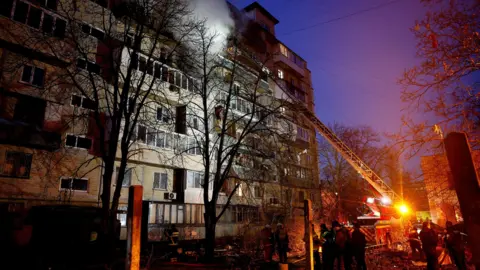

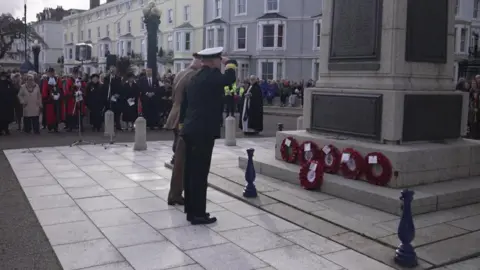




 灯火通明——黑暗的一天 :特朗普的成千上万支持者聚集在华盛顿国会大厦周围。他们挥舞旗帜并要求将据称被窃取的选举成果还给他们。其中有 800 人强行闯入国会大厦,追击政界人士,殴打警察,并留下毁灭的痕迹。暴力事件中有5人丧生,十几人受伤。
灯火通明——黑暗的一天 :特朗普的成千上万支持者聚集在华盛顿国会大厦周围。他们挥舞旗帜并要求将据称被窃取的选举成果还给他们。其中有 800 人强行闯入国会大厦,追击政界人士,殴打警察,并留下毁灭的痕迹。暴力事件中有5人丧生,十几人受伤。  特朗普:“空气中充满了爱” :在很多人看来,这是一场暴动,甚至是特朗普煽动、策划的未遂政变。目前,美国国会一特别委员会正调查这位前总统在冲击国会事件中所扮演的角色。特朗普本人新近称,那天,“空气中充满了爱”,以自己的方式做出回应。
特朗普:“空气中充满了爱” :在很多人看来,这是一场暴动,甚至是特朗普煽动、策划的未遂政变。目前,美国国会一特别委员会正调查这位前总统在冲击国会事件中所扮演的角色。特朗普本人新近称,那天,“空气中充满了爱”,以自己的方式做出回应。 一切都只是合法抗议? :国会大厦风暴震惊了全世界。但是,很多共和党人却坚称,它是对涉嫌选举操控的合法抗议行为。他们甚至在关押嫌疑人的监狱外组织活动。澄清事实或颠倒黑白——谁对国会山风暴的解释占上风,谁就最有可能赢得2022年11月8日的中期选举。
一切都只是合法抗议? :国会大厦风暴震惊了全世界。但是,很多共和党人却坚称,它是对涉嫌选举操控的合法抗议行为。他们甚至在关押嫌疑人的监狱外组织活动。澄清事实或颠倒黑白——谁对国会山风暴的解释占上风,谁就最有可能赢得2022年11月8日的中期选举。  700多名被告 :袭击国会大厦者将受到法律制裁。迄今,已有50 多人被定罪。最有力的证据常来自被告本人:他们在社交媒体上炫耀自己的所作所为。同意“认罪协议”者可望获假释:若被告承认自己有罪,可获较轻量刑。
700多名被告 :袭击国会大厦者将受到法律制裁。迄今,已有50 多人被定罪。最有力的证据常来自被告本人:他们在社交媒体上炫耀自己的所作所为。同意“认罪协议”者可望获假释:若被告承认自己有罪,可获较轻量刑。  调查人员聚焦“骄傲男孩” :首都华盛顿已起诉这个右翼激进组织,要求赔偿。该组织被认为是特朗普最忠实的支持团体之一。根据一项民事诉讼,该组织负责人图谋经由“国内恐怖主义协调行动”打击华盛顿。针对数名“骄傲男孩”成员已展开刑事调查。
调查人员聚焦“骄傲男孩” :首都华盛顿已起诉这个右翼激进组织,要求赔偿。该组织被认为是特朗普最忠实的支持团体之一。根据一项民事诉讼,该组织负责人图谋经由“国内恐怖主义协调行动”打击华盛顿。针对数名“骄傲男孩”成员已展开刑事调查。  鞭手琼斯
:电台主持人和阴谋论者亚历克斯·琼斯( Alex Jones )是这场骚乱的推动者之一。在华盛顿举行的亲特朗普抗议游行过程中击鼓打气,并极力主张百万人上街声援特朗普,抗议腐败的民主党人。国会特别调查委员会称,琼斯还为这次活动的融资提供了帮助。
鞭手琼斯
:电台主持人和阴谋论者亚历克斯·琼斯( Alex Jones )是这场骚乱的推动者之一。在华盛顿举行的亲特朗普抗议游行过程中击鼓打气,并极力主张百万人上街声援特朗普,抗议腐败的民主党人。国会特别调查委员会称,琼斯还为这次活动的融资提供了帮助。
 “QAnon(匿名者)萨满”系狱 : 他的脸、纹身、戴水牛角毛帽的形象传遍全球,使他成了国会大厦冲击风暴的象征性角色:雅各布·钱斯利( Jacob Chensley )。这个来自亚利桑那州凤凰城的自诩为“匿名者”萨满的阴谋论支持者已认罪,获刑三年半。
“QAnon(匿名者)萨满”系狱 : 他的脸、纹身、戴水牛角毛帽的形象传遍全球,使他成了国会大厦冲击风暴的象征性角色:雅各布·钱斯利( Jacob Chensley )。这个来自亚利桑那州凤凰城的自诩为“匿名者”萨满的阴谋论支持者已认罪,获刑三年半。  警官梦魇 :在审看 2021年1月6日事件视频时,联邦警察戈内尔 (Aquilino Gonell) 再也无法忍住泪水。他在众议院调查委员会作证时说, “若保卫这个入口,我就会死亡。”一警官在暴力事件中丧生,另有4名警官后来自杀身亡。
警官梦魇 :在审看 2021年1月6日事件视频时,联邦警察戈内尔 (Aquilino Gonell) 再也无法忍住泪水。他在众议院调查委员会作证时说, “若保卫这个入口,我就会死亡。”一警官在暴力事件中丧生,另有4名警官后来自杀身亡。  更多安全措施 :特朗普支持者们之所以能进入国会大厦,也在于安全部门工作不力。国会参议院调查结果:尽管有迹象显示,袭击事件发生在即,但警方领导层未发出任何指示;国民警卫队的介入被一再推延;联邦调查局和国土安全部对网上威胁未加重视。
更多安全措施 :特朗普支持者们之所以能进入国会大厦,也在于安全部门工作不力。国会参议院调查结果:尽管有迹象显示,袭击事件发生在即,但警方领导层未发出任何指示;国民警卫队的介入被一再推延;联邦调查局和国土安全部对网上威胁未加重视。  特朗普重返华盛顿?:对特朗普的反对者来说,那绝对是一场噩梦;在他的支持者眼里,那却将是一次凯旋。许多政治事务专家确信,2024 年,这位前总统将再度竞选总统。到目前为止,丑闻尚未真正使特朗普受伤。他在 1月6日事件上所起的作用似乎未能阻碍他卷土重来。
特朗普重返华盛顿?:对特朗普的反对者来说,那绝对是一场噩梦;在他的支持者眼里,那却将是一次凯旋。许多政治事务专家确信,2024 年,这位前总统将再度竞选总统。到目前为止,丑闻尚未真正使特朗普受伤。他在 1月6日事件上所起的作用似乎未能阻碍他卷土重来。  拜登:我们想要成为什么样的国家?:在冲击国会大厦事件一周年之际,美国总统拜登呼吁人们维护民主。他在2022年1月6日说,美国人必须决定“我们想成为什么样的国家”。“我们要成为一个接受政治暴力为常态的国家吗?”拜登警告说,“我们不能成为这样一个国家”。
拜登:我们想要成为什么样的国家?:在冲击国会大厦事件一周年之际,美国总统拜登呼吁人们维护民主。他在2022年1月6日说,美国人必须决定“我们想成为什么样的国家”。“我们要成为一个接受政治暴力为常态的国家吗?”拜登警告说,“我们不能成为这样一个国家”。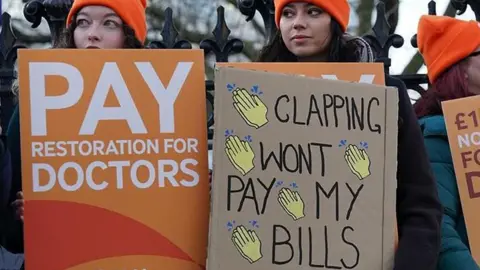
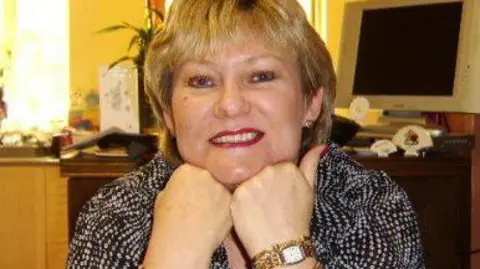
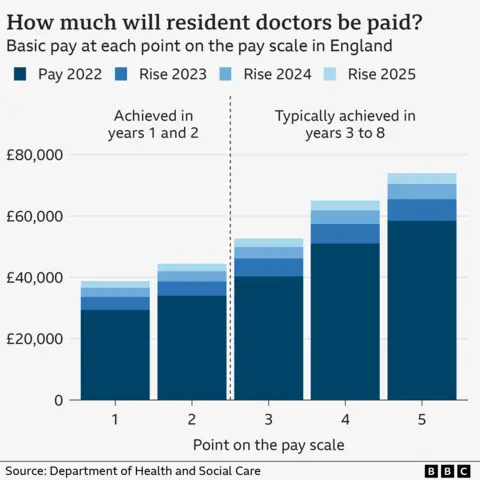

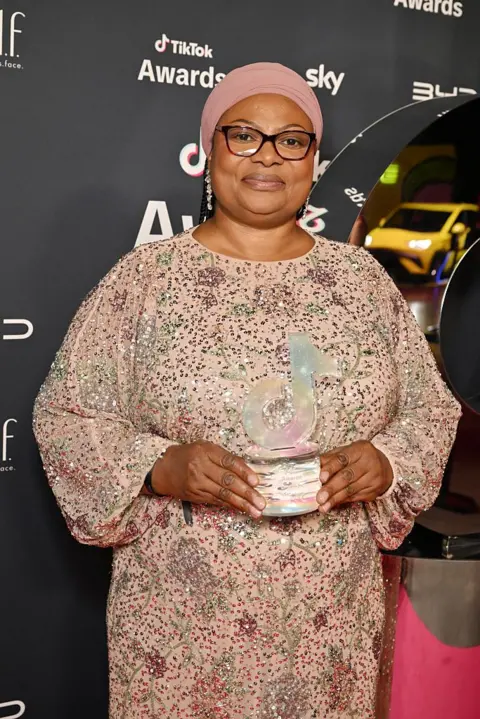
















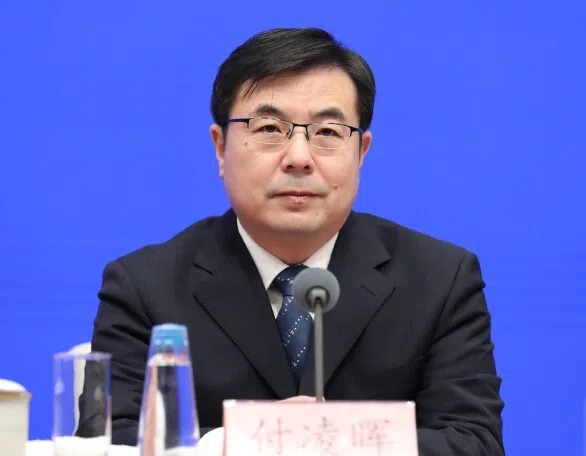





 lead image
lead image